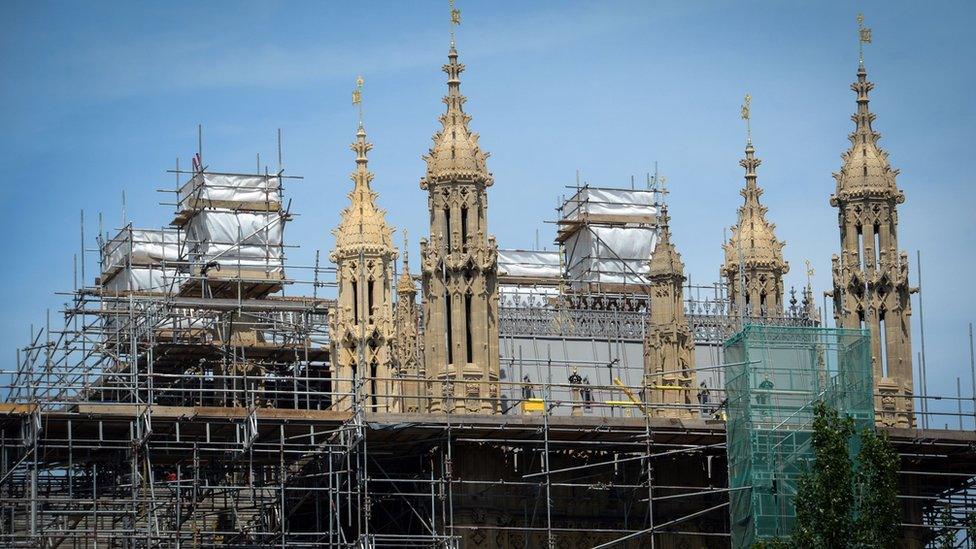MPs urged to take part in live fire drills in Parliament
- Published
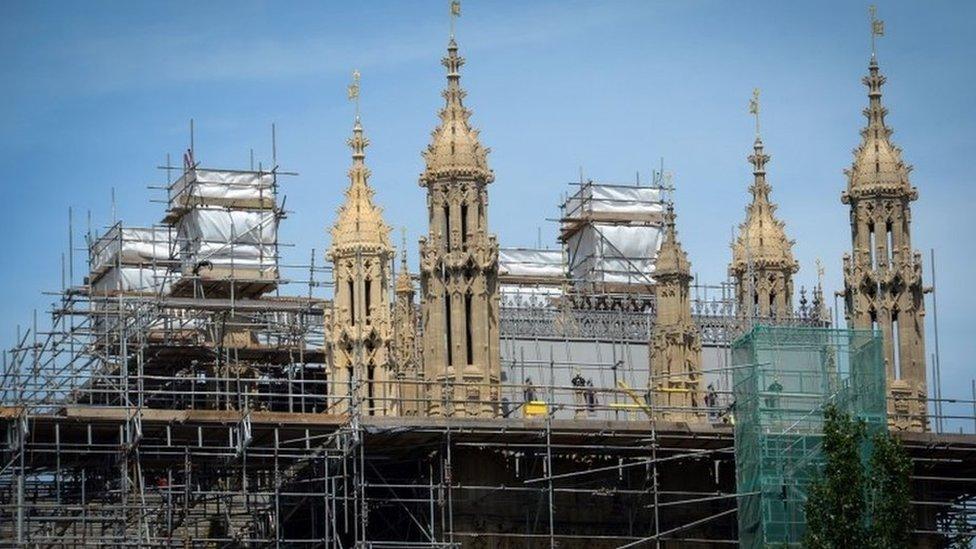
Parts of the 150-year-old building, which contains asbestos and outdated cabling, are sinking.
Fire drills should be carried out in Parliament when MPs are sitting to test the building's capacity to deal with an emergency, a senior official has said.
David Leakey, who is retiring as Black Rod, told the BBC the historic but crumbling Palace of Westminster must follow best practice like all offices.
"If you don't practise these drills and something goes wrong, then there will be a blame game going on," he said.
He has already warned of the risk of loss of life due to its poor condition.
Last month he suggested the Palace of Westminster - which burned down in 1834 - was at risk again of a major fire due to its poor state of repair and could become the next Grenfell Tower.
MPs are due to debate the options for restoring the building - including a total evacuation of MPs and peers while work is carried out - in the coming months, although there will be no vote for about 18 months.
Mr Leakey, who was in charge of controlling access to and maintaining order within the House of Lords, told Radio 4's Westminster Hour there was no excuse for Parliament not to take every available precaution given the age of the building and the antiquated nature of its wiring and stonework.
A live fire drill while the Commons and Lords were sitting had been recommended, he said, and was "very likely" to happen - irrespective of the inevitable disruption it would cause.
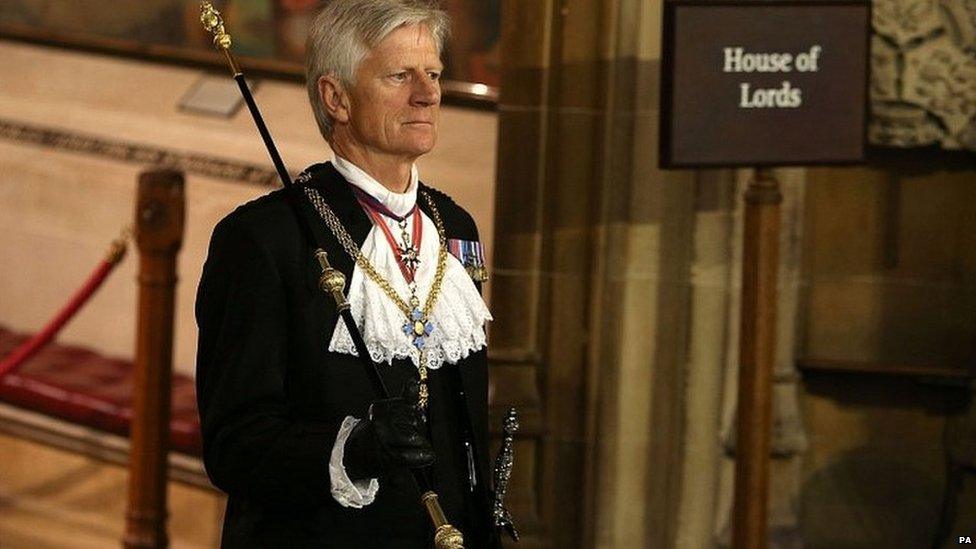
Black Rod is an ancient ceremonial figure but also has a key operational role in Parliament
"You never know that your drills are good enough until you have rehearsed and tested them," he said.
"It should be a matter of good practice and I don't think Parliament should exempt itself from doing what every other proper organisation should do to ensure the safety of everybody in the building."
Mr Leakey, who favours a so-called "full decant" so restoration work can be carried out in one go rather than on a phased basis, said politicians needed to make the case for spending billions on the project both in terms of ensuring public safety and also preserving the history of the "iconic" building.
"If we don't do it now then we might be having to salvage a building rather than restore a building."
In December, the Parliamentary authorities road-tested plans to move MPs to a temporary venue should the chamber of the House of Commons become unusable because of fire or flood.
An alternative location close to the Palace of Westminster - earmarked to take over parliamentary business and other core functions for an initial period of 10 weeks - was "successfully" trialled.
A "pop-up" House of Commons chamber was recreated, complete with dispatch boxes, a table for the Commons mace and a Speaker's chair, although this has now been dismantled.
In the wide-ranging BBC interview, Mr Leakey - a former lieutenant general in the British army who as Black Rod is the Sovereign's representative in the House of Lords - also said it was "extraordinary" that some MPs and peers were not setting the right example by always wearing their security passes while in the building.
"I don't know what the percentage is - whether it is 5%, 10%, 15% or 20% - of members who don't wear their security passes," he said.
"If you go into a civilian organisation - a bank, a university laboratory, a hospital - everybody wears security passes there from the chairman downwards, So I don't see why it doesn't apply here."
The Gentleman Usher of the Black Rod is best known for the State Opening of Parliament, knocking on the door of the House of Commons to summon MPs for the Queen's Speech.
Mr Leakey is due to be succeeded by former Wimbledon tennis championship boss Sarah Clarke, who will be the first woman to take the role since it was created 650 years ago.
- Published22 December 2017
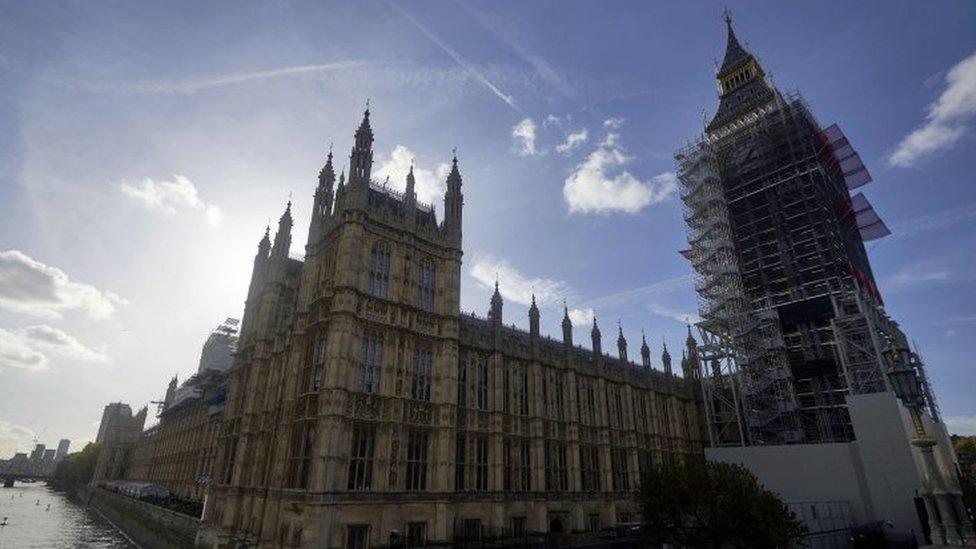
- Published17 November 2017
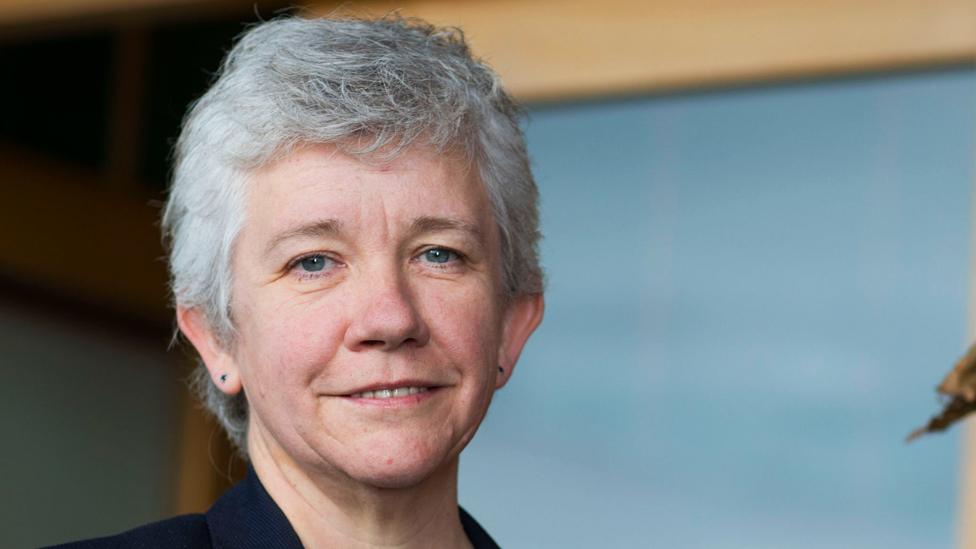
- Published24 October 2017
